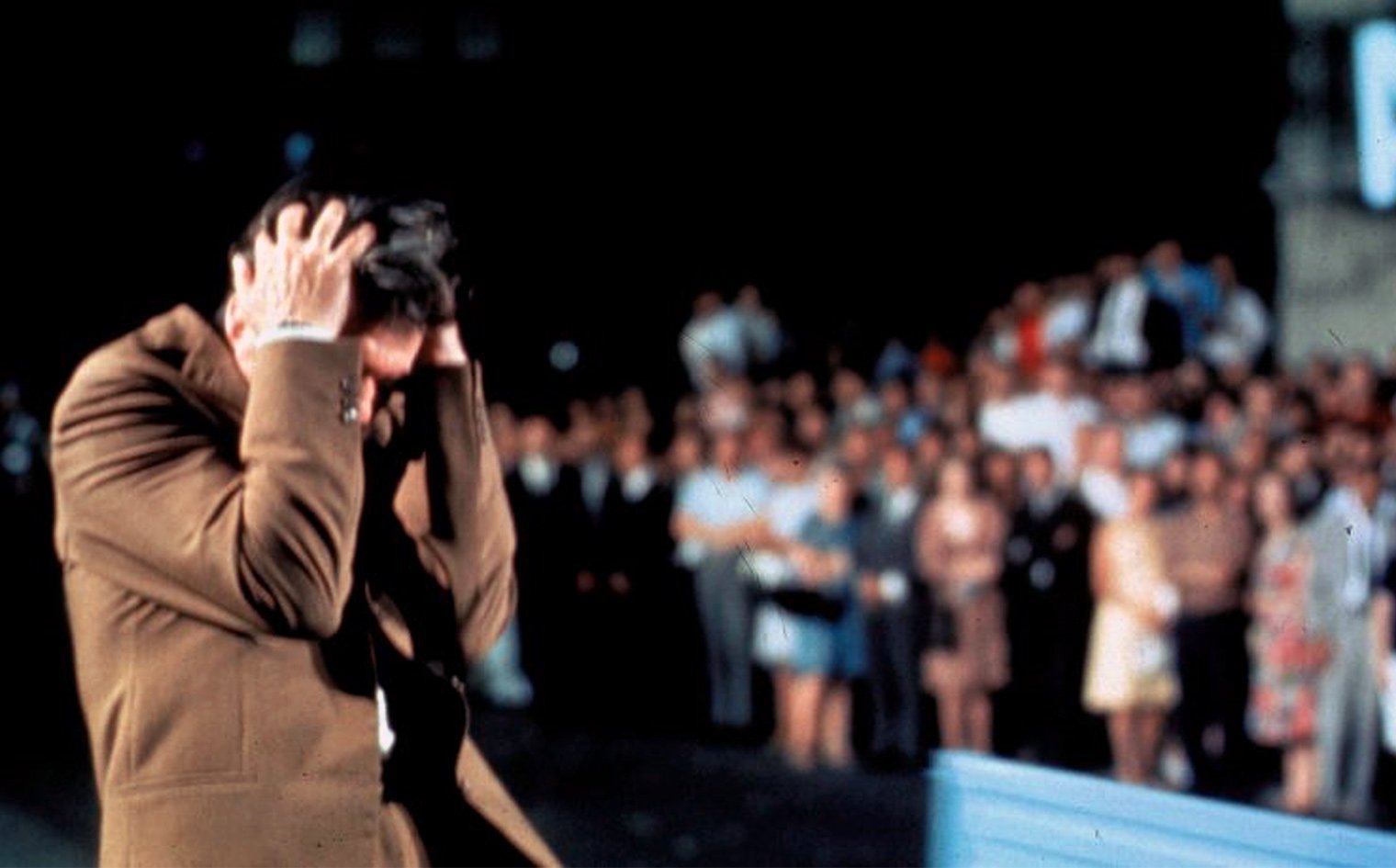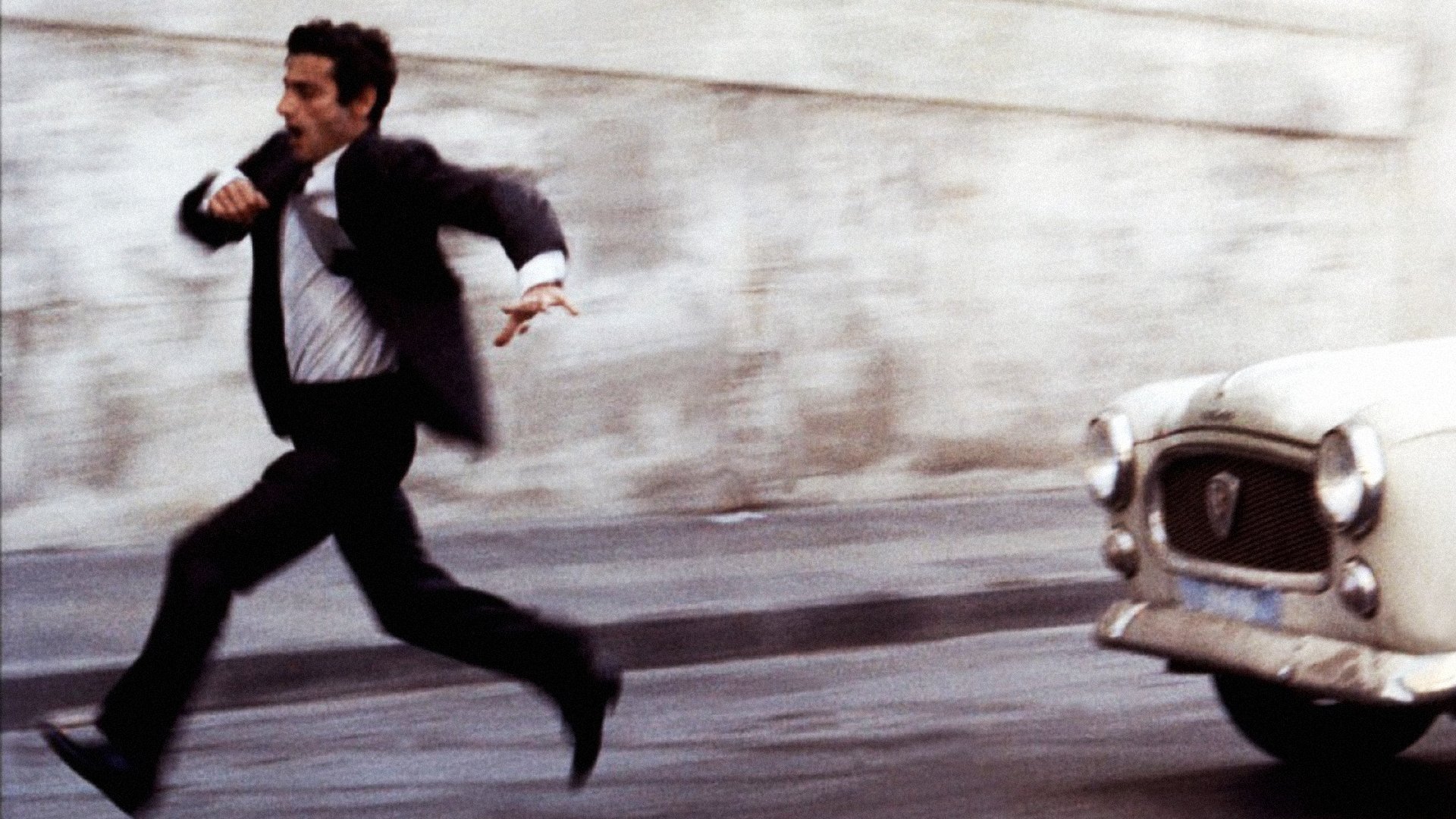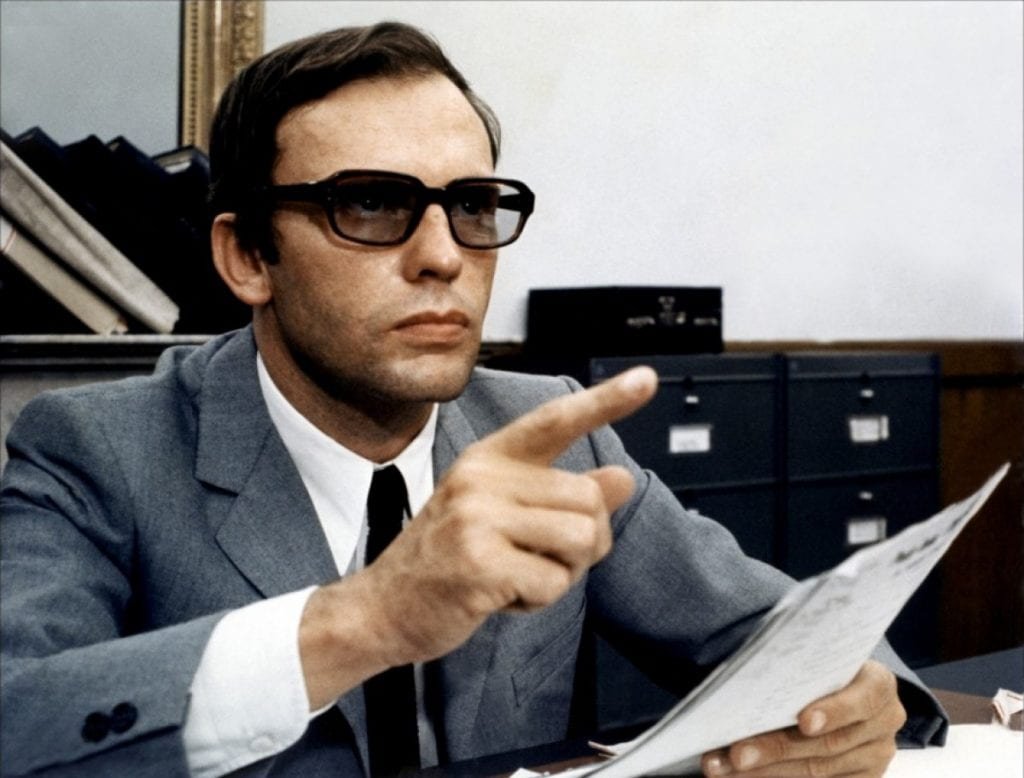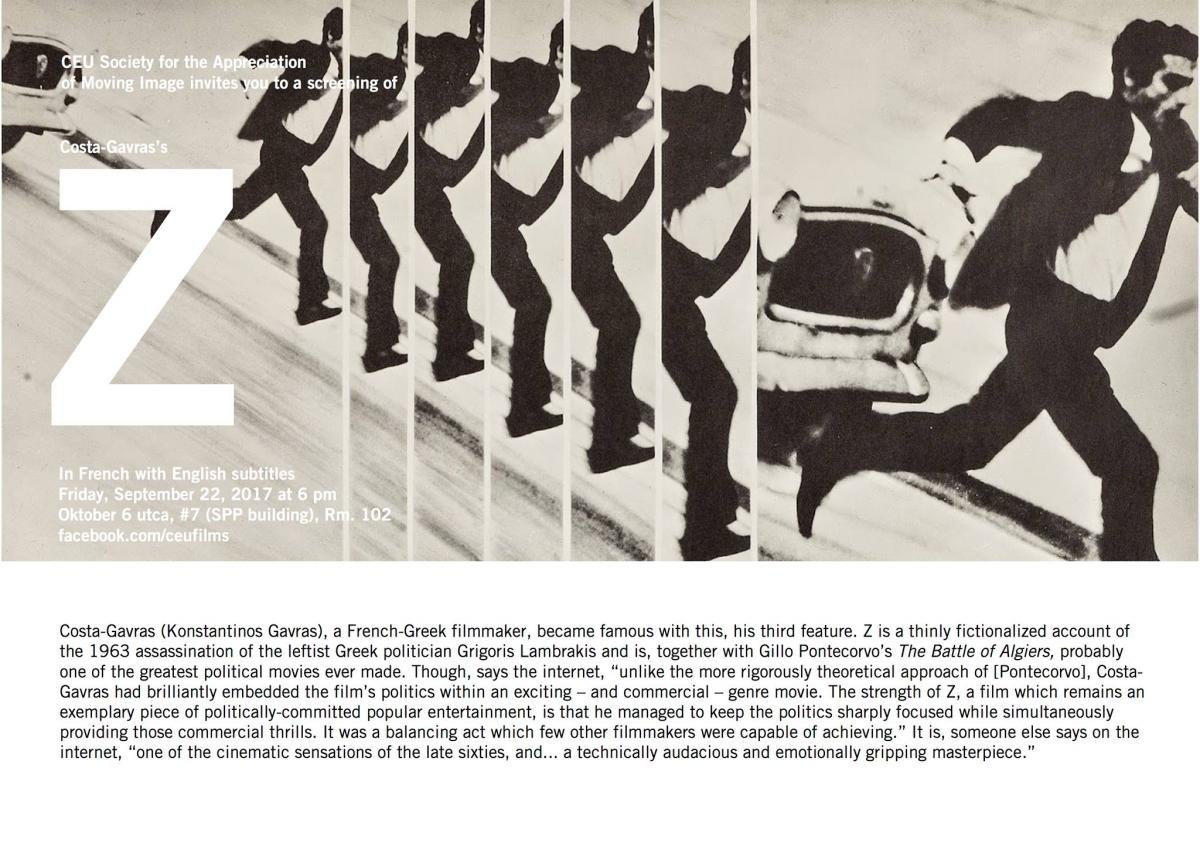A POLITICAL SEASON: Occasional 2024 series on politics in movies Z (1969, co-adap/dir by Costa-Gavras, France-Greece, 127mns)
Sometimes it’s pure joy to come way too late to a movie you should have seen years before. Such was the experience for this writer upon watching Costa-Gavras 1969 political thriller Z .
Has this ever happened to you? Early in your movie love someone mentions a movie or you keep seeing a title pop up but somehow you never get to it? These holes in one’s movie education can be blessings. Beautiful little hidden blessings in the moist earth of cinema.
Because when you do finally see the movie, you can have an ecstatic reaction, just like you had at the very beginning of your cinema crazed youth.
Z is an unlikely propulsive, entertaining masterpiece. Adapted from a 1967 novel (Z in the Greek alphabet can also mean “He lives”), it is a fictionalized investigative procedural into the assassination of real-life Greek politician Grigoris Lambrakis.
There’s always a bit of masterful stage magic to great movies. Here, you marvel at how this movie can be so angry, so insightful, so clinical, so full of righteous indignation, so entertaining, so successful in its wild cinema craft, so focused in its storytelling, so political, yet so clear eyed all at the same time.
It’s a kind of close up room magic young moviemakers sometimes pull off that older moviemakers can never get close to. Think Orson Welles with Citizen Kane. Think Martin Scorsese with Mean Streets. Think Rainer Werner Fassbinder with any number of the movies he made before he flamed out from drugs, exhaustion, overwork at 38 years old.
Ah man! Does political change have to be this hard?
The story, at heart, is an investigation. First, we see leftist politicians in an unnamed Mediterranean country (the movie was shot in Algiers though it’s clearly a stand-in for Greece) stymied by the police and government at every turn to put on a protest rally and speech. Though they eventually succeed, their political leader, “The Deputy” (played by French great Yves Montand) arrives to learn there are rumors of death threats. He ignores them. Gives the speech. Then gets clubbed horribly outside in front of police who do nothing to stop it.
From there, we switch over to the perspective of “The Examining Magistrate” (played by another French luminary, Jean-Louis Trintignant). Trintignant’s character is also based on real life Christos Sartzetakis who would go on to be Greece’s President from 1985-1990. The Magistrate is clearly an honest, “just the facts” professional who begins to realize that the government’s line that the Deputy was accidentally killed by Drunks in a hit and run is a cover up for a political assassination okay’d and orchestrated by a military terrified of “communist” elements overtaking the country.
This log-line might fool you into thinking the movie is too political. It’s not. The dirty secret about Z is that the movie is almost too entertaining.
Shot by French new wave cinematographer, Raoul Coutard, Z is that rare political movie like Oliver Stone’s JFK and Steven Spielberg’s Munich that entertains in order to get you to pay attention.
From the restless, brilliant camera to the rat a tat percussive brilliance of the editing to the minor miracle that almost every single actor in the movie gives a memorable performance, Z is gripping.
Wait. . .there’s a car chase in this movie?
Costa-Gavras and his collaborators do a clever thing in showing us the event and murder first before the Magistrate shows up to investigate. BUT. . .the moviemakers and the script do withhold certain details, moments until characters are called in to give depositions. Even though we KNOW the Deputy was attacked and brutalized on purpose, we do not realize the full complicity and efforts of the government until the Magistrate’s sleuth work draws it out of willing and unwilling witnesses.
There’s a real ace in the hole benefit to youthful anger every now and then. You can feel Costa-Gavras’ fury at how anti-communist right wing forces in his beloved Greece felt it was better to tank a democracy then allow the unpredictability of political dissent. As the movie tells us in its post-script, the Magistrate’s charging police and military figures with the murder precipitated a full crack down on democracy, the rule of law, and dissent in Greece and led to the setting up of a military junta (which lasted from 1967-1974).
The Examining Magistrate’s fashion sense is fire in this film
At most, we’re only given eighty to ninety years on this earth. And so we live lives that slowly come to realize the mercurial, dark cross currents that rage in our politics, our reactions to the events around us. Undoubtedly, leaders who feel it necessary to stifle and suppress dissent in their own countries feel they are doing the right and necessary thing. One can imagine them scoffing in disgust at a journalist or idealist who suggests a truly strong government allows dissent rather than censoring it.
“What about mass protests? What about the breakdown of civil order? What about mass chaos?” one can hear them say through contemptuous clenched teeth. “You only advocate for democracy and dissent because you don’t have the responsibility of the social order of a nation that is barely holding on.”
“And,” they might continue. “Look where democracy and dissent gets you? Look at your United States. Look at its hypocrisy. Look at its decadence. Look at its ugliness. . .”
There are two sides (at the very least) to almost every story. And there are perspectives that one ignores at one’s peril even if one vehemently disagrees with them.
But what Z communicates so well through the grammar of the action film, the suspense thriller, the mystery, is that there is a “dark arts”playbook of power, intimidation, and gas lighting, possibly as old as recorded history itself, that is incredibly hard to overcome. Though its specifics are different in different cultures, different countries, no society is immune to populism, demagoguery, overreaction against a disliked political philosophy.
But before we leave off here, we’ve barely scratched the surface of what makes Z brilliant. While the filmmaker’s sympathies clearly lie with the Deputy and the left-leaning politicians/lawyers who organize the rally at the beginning, Costa-Gavras still shows us that the Deputy is probably cheating on his wife. His Wife is probably cheating on him. The “non-violent rule of law” Left has a certain kind of fickleness and fecklessness that causes it to self-sabotage its goals/aims. And Costa-Gavras, while not exactly sympathetic to the Working Class “hired” Thugs who do the dirty work for shadowy power at least has an understanding that many of these blue collar toughs do so because of financial pressures, strains, etc.
Ultimately, like so many movies, Z is a masterpiece because the electric moviemaking itself makes us electric with the story. The tango of form and content is at the heart of what cinema IS.
The problem may be that as we age the style part of it comes less easily to us. Ideas, solutions, shots, edits, sequences that flow to us as constantly as dreams of flying come more haltingly as age increases and energy decreases.
But we must, WE MUST work to stay in contact with the child and the young person we once were somehow. Even with movies as politically complicated and “adult” as Z there is a felicity and crackle crucial to so many of the world’s most enduring cinematic works.
Craig Hammill is the founder.programmer of Secret Movie Club





